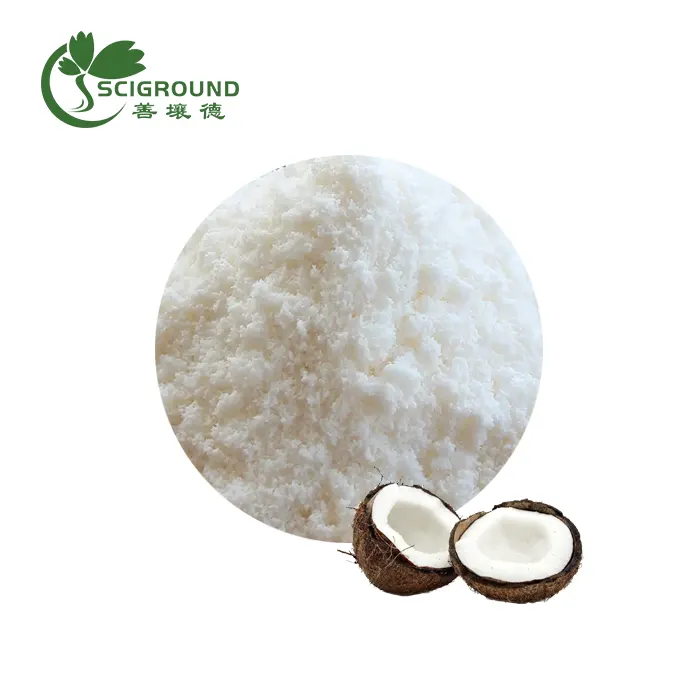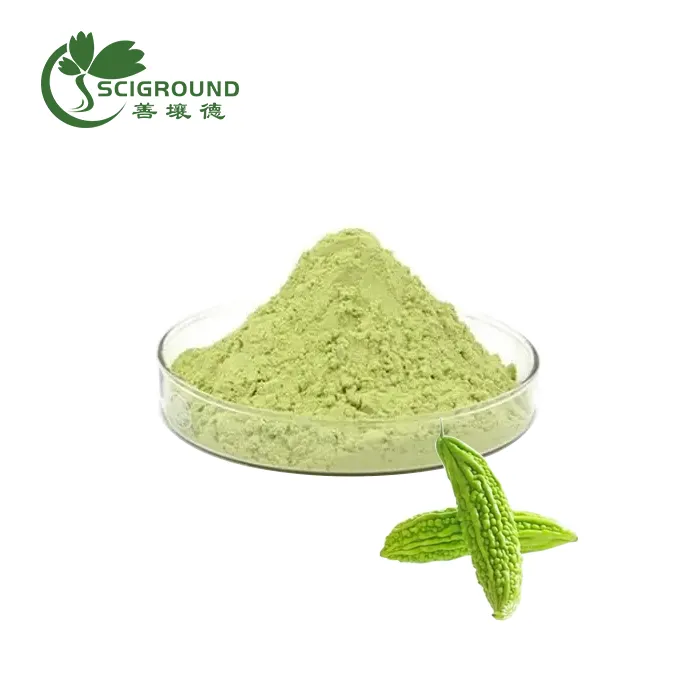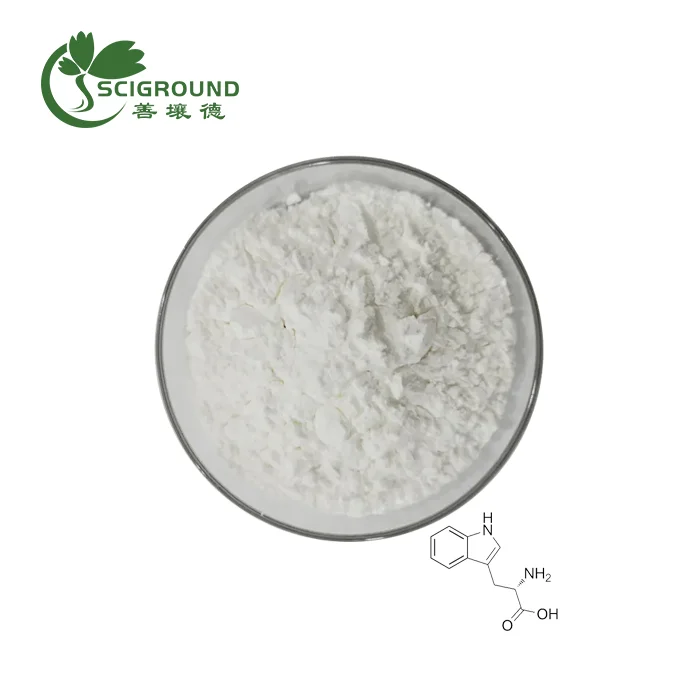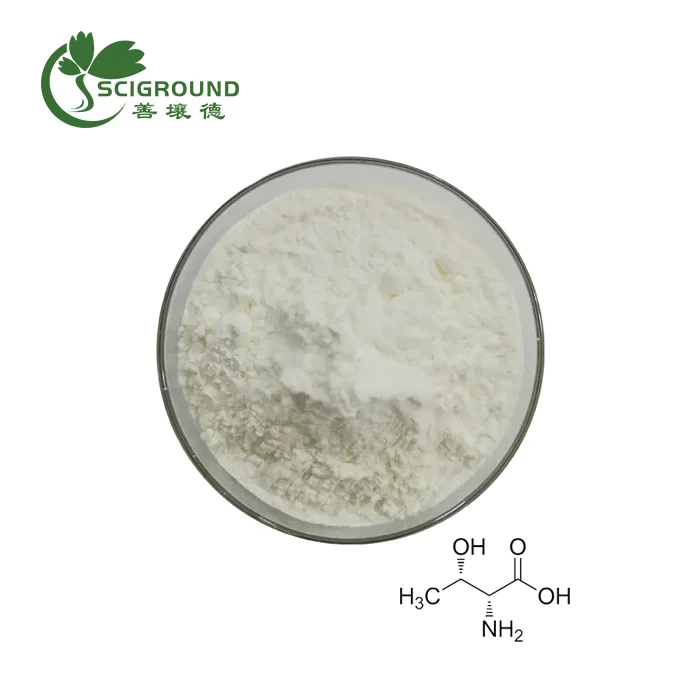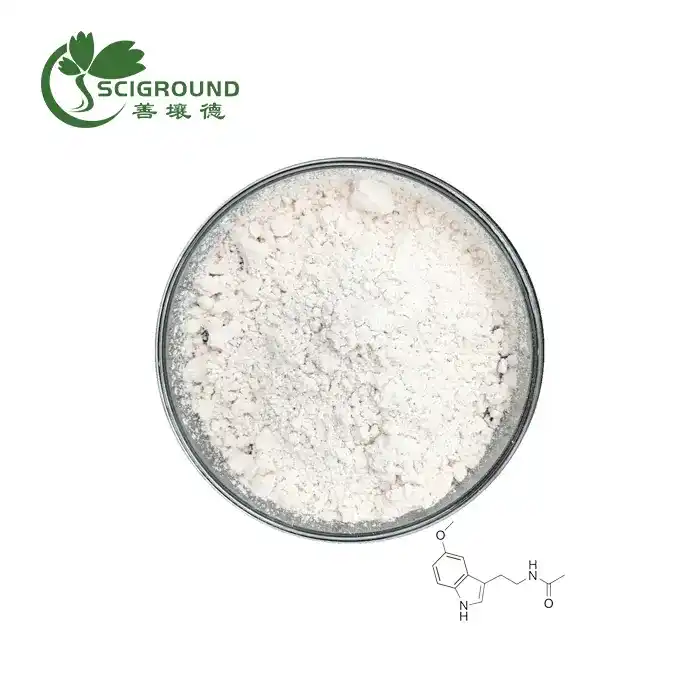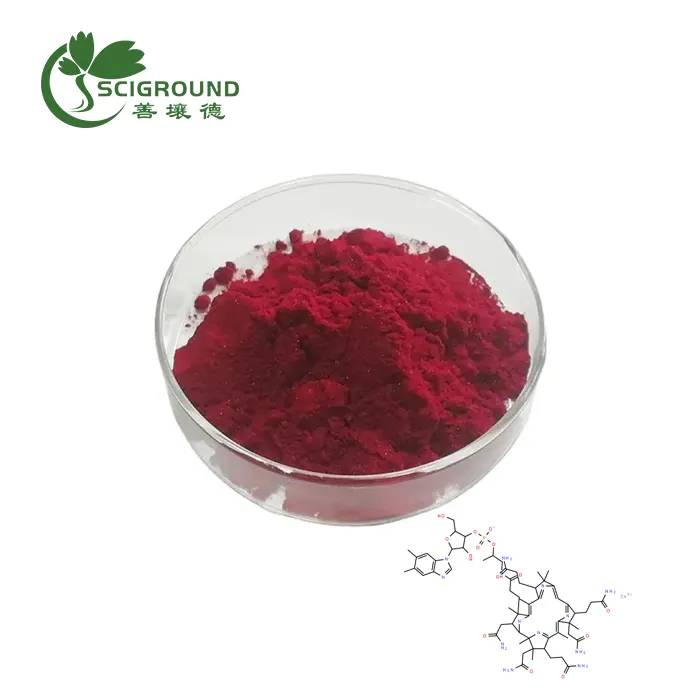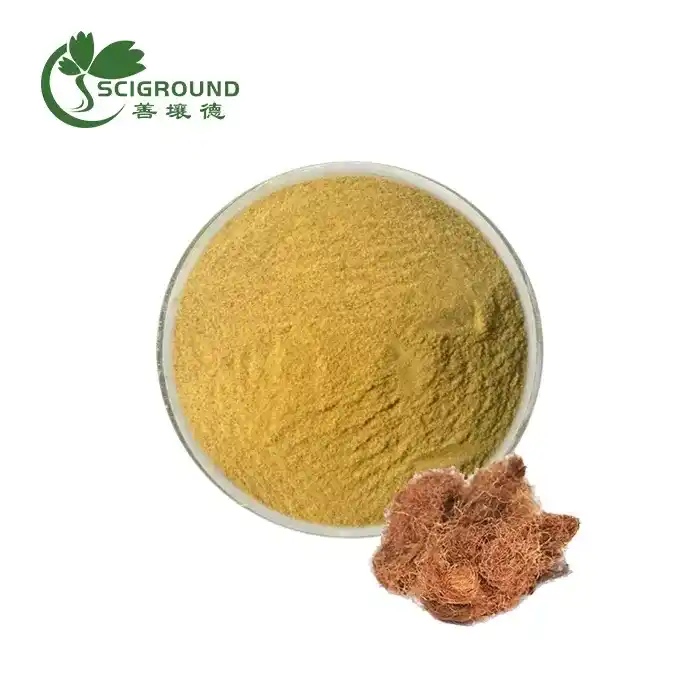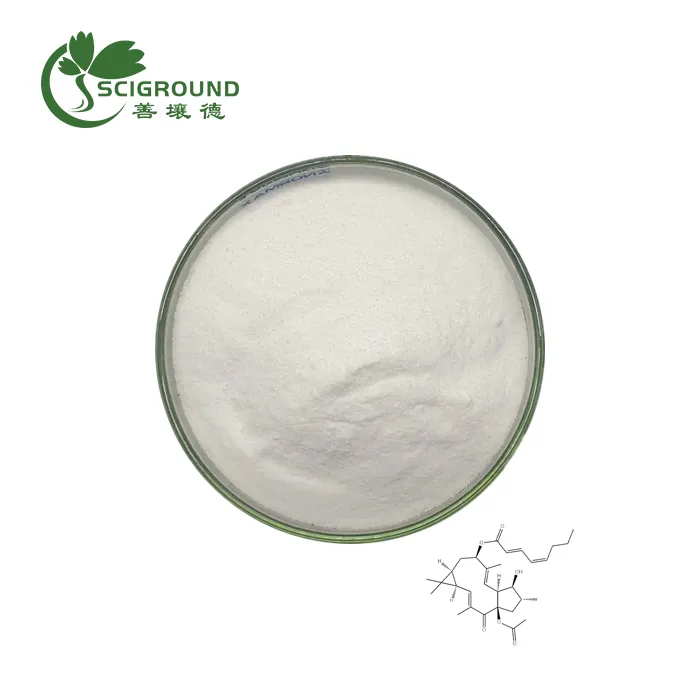What is Alfacalcidol Powder
Alfacalcidol powder is a powerful and versatile substance that plays a crucial role in managing various health conditions related to calcium metabolism and bone health. As a vitamin D active metabolite, it serves as a key player in maintaining calcium balance and supporting overall bone metabolism. This potent compound is widely recognized for its effectiveness in treating osteoporosis and other bone-related disorders.
Manufactured by Shaanxi SCIGROUND, a leading plant extract powder manufacturer, Alfacalcidol powder is produced under strict quality control measures in their GMP-certified facility. This ensures that customers receive a high-quality product that meets international standards.
Alfacalcidol is a vitamin D-hormone analogue that undergoes activation in the liver through the enzyme 25-hydroxylase. This activation process enables it to perform both systemic and local D-hormone activities throughout the body. Its unique properties allow it to exert pleiotropic effects on various organs and systems, including the gut, bone, parathyroid glands, muscles, and brain.
The multifaceted nature of Alfacalcidol makes it an invaluable tool in managing a range of health issues. Let's explore its uses, potential side effects, and proper administration in more detail.
Alfacalcidol Uses
Alfacalcidol powder boasts a wide array of applications in the medical field, primarily focusing on conditions related to calcium metabolism and bone health. Here are some of the key uses of Alfacalcidol:
Treatment of Osteoporosis
Osteoporosis, characterized by decreased bone density and increased fracture risk, is one of the primary conditions treated with Alfacalcidol. The compound helps enhance bone strength and reduce the likelihood of fractures in individuals suffering from this condition.
Management of Hypocalcemia
Alfacalcidol is highly effective in addressing hypocalcemia, a condition marked by low blood calcium levels. By promoting calcium absorption and utilization, it helps restore normal calcium levels in the body.
Addressing Rickets and Osteomalacia
Both rickets in children and osteomalacia in adults, conditions characterized by bone weakness due to vitamin D deficiency, can be effectively managed with Alfacalcidol supplementation.
Regulation of Calcium Metabolism in Kidney Disorders
Patients with chronic kidney disease often experience disruptions in calcium metabolism. Alfacalcidol helps manage these imbalances, supporting overall kidney function and bone health.
Treatment of Hypoparathyroidism
In cases of hypoparathyroidism, where the body doesn't produce enough parathyroid hormone, Alfacalcidol can help regulate calcium levels and maintain proper bone metabolism.
Support for Muscle Function
Recent research suggests that Alfacalcidol may play a role in improving muscle strength and function, particularly in older adults at risk of falls and fractures.
Potential Neuroprotective Effects
Emerging studies indicate that Alfacalcidol might have neuroprotective properties, potentially benefiting individuals with certain neurological conditions.
The versatility of Alfacalcidol in addressing various health concerns makes it a valuable tool in modern medicine. However, it's crucial to note that Alfacalcidol should only be used under the guidance of a healthcare professional, as improper use can lead to adverse effects.
Alfacalcidol Side Effects
While Alfacalcidol is generally well-tolerated, it's important to be aware of potential side effects that may occur during treatment. These side effects can range from mild to severe, and their occurrence may depend on factors such as dosage, individual sensitivity, and pre-existing health conditions.
Common Side Effects
Some individuals may experience mild side effects when taking Alfacalcidol. These common side effects include:
- Itching or skin rash
- Abdominal discomfort or pain
- Headache
- Drowsiness
- Constipation
- Nausea
- Vomiting
In most cases, these side effects are temporary and subside as the body adjusts to the medication. However, if these symptoms persist or worsen, it's advisable to consult a healthcare provider.
Serious Side Effects
While less common, some individuals may experience more serious side effects that require immediate medical attention. These include:
- Irregular heartbeat
- Severe skin reactions
- Bone and joint pain
- Muscle pain and weakness
- Hypercalcemia (increased calcium levels in the blood)
- Hypercalciuria (increased calcium in urine)
- Hyperphosphatemia (increased phosphate levels in blood)
These serious side effects can indicate an adverse reaction to the medication or potential complications related to calcium metabolism. If you experience any of these symptoms, seek immediate medical attention.
Long-term Effects
Prolonged use of Alfacalcidol may lead to certain long-term effects that require monitoring:
- Kidney stone formation
- Calcification of soft tissues
- Potential impact on liver function
Regular check-ups and blood tests are typically recommended for individuals on long-term Alfacalcidol therapy to monitor calcium levels and overall health status.
Drug Interactions
Alfacalcidol may interact with certain medications, potentially altering their effectiveness or increasing the risk of side effects. Some medications that may interact with Alfacalcidol include:
- Diuretics
- Calcium supplements
- Certain antacids
- Anticonvulsants
- Cholesterol-lowering drugs
It's crucial to inform your healthcare provider about all medications, supplements, and herbal products you're taking to prevent potential drug interactions.
Precautions and Contraindications
Certain individuals may need to exercise caution or avoid using Alfacalcidol altogether. These include:
- People with hypercalcemia
- Individuals with severe kidney disease
- Those with certain types of cancer
- Pregnant or breastfeeding women (unless prescribed by a doctor)
Always consult with a healthcare professional before starting Alfacalcidol treatment, especially if you have any pre-existing medical conditions or are taking other medications.
How to Use Alfacalcidol
Proper usage of Alfacalcidol is crucial for achieving optimal therapeutic benefits while minimizing the risk of side effects. Here's a comprehensive guide on how to use Alfacalcidol effectively:
Dosage Instructions
The appropriate dosage of Alfacalcidol can vary depending on the individual's condition, age, and response to treatment. Generally, Alfacalcidol is taken once daily, but some patients may be prescribed a different regimen. Always follow your doctor's instructions regarding dosage.
- Adults: The typical starting dose ranges from 0.25 to 1 microgram per day.
- Children: Dosage is usually based on body weight and determined by the physician.
- Elderly patients: May require lower doses due to increased sensitivity.
Your doctor may adjust your dosage based on your blood calcium levels and response to treatment.
Administration Tips
To ensure proper absorption and effectiveness of Alfacalcidol:
- Take Alfacalcidol at the same time each day to maintain consistent levels in your body.
- You can take it with or without food, but be consistent with your chosen method.
- If using the liquid form, use a special measuring device or spoon to ensure accurate dosing.
- Swallow capsules whole; do not crush, chew, or open them unless instructed by your doctor.
Timing Considerations
Some medications can interfere with the absorption of Alfacalcidol. To maximize its effectiveness:
- Wait at least 2 hours before or after taking Alfacalcidol to take other medications.
- If you're also taking calcium supplements, your doctor may advise taking them at a different time of day.
Missed Dose Protocol
If you miss a dose of Alfacalcidol:
- Take it as soon as you remember if it's within 12 hours of your usual dosing time.
- If it's close to the time for your next dose, skip the missed dose and resume your regular schedule.
- Never double up on doses to make up for a missed one.
Monitoring and Follow-up
Regular monitoring is essential when taking Alfacalcidol:
- Your doctor will likely schedule periodic blood tests to check calcium, phosphate, and vitamin D levels.
- Bone density scans may be recommended to assess the medication's effectiveness in treating osteoporosis.
- Report any unusual symptoms or side effects to your healthcare provider promptly.
Lifestyle Considerations
To maximize the benefits of Alfacalcidol treatment:
- Maintain a balanced diet rich in calcium and vitamin D.
- Engage in regular weight-bearing exercises to support bone health.
- Avoid excessive alcohol consumption and smoking, which can negatively impact bone health.
- Ensure adequate sun exposure for natural vitamin D synthesis, but avoid overexposure.
Storage and Handling
Proper storage of Alfacalcidol is important to maintain its potency:
- Store at room temperature, away from direct sunlight and moisture.
- Keep the medication out of reach of children and pets.
- Do not use Alfacalcidol beyond its expiration date.
- Dispose of unused medication properly, following local guidelines or pharmacy instructions.
By following these guidelines and maintaining open communication with your healthcare provider, you can optimize the benefits of Alfacalcidol while minimizing potential risks. Remember, Alfacalcidol is a powerful medication that requires careful management and regular monitoring for safe and effective use.
References
- Ringe, J. D., & Schacht, E. (2007). Prevention and therapy of osteoporosis: the roles of plain vitamin D and alfacalcidol. Rheumatology International, 27(4), 311-327.
- Dukas, L., Bischoff, H. A., Lindpaintner, L. S., Schacht, E., Birkner-Binder, D., Damm, T. N., ... & Stähelin, H. B. (2004). Alfacalcidol reduces the number of fallers in a community-dwelling elderly population with a minimum calcium intake of more than 500 mg daily. Journal of the American Geriatrics Society, 52(2), 230-236.
- Schacht, E., & Ringe, J. D. (2012). Alfacalcidol improves muscle power, muscle function and balance in elderly patients with reduced bone mass. Rheumatology international, 32(1), 207-215.
- Ringe, J. D., Farahmand, P., & Schacht, E. (2013). Alfacalcidol in men with osteoporosis: a prospective, observational, 2-year trial on 214 patients. Rheumatology international, 33(3), 637-643.
- Lau, K. H., & Baylink, D. J. (1999). Vitamin D therapy of osteoporosis: plain vitamin D therapy versus active vitamin D analog (D-hormone) therapy. Calcified tissue international, 65(4), 295-306.
- Orimo, H., Nakamura, T., Hosoi, T., Iki, M., Uenishi, K., Endo, N., ... & Sugimoto, T. (2012). Japanese 2011 guidelines for prevention and treatment of osteoporosis—executive summary. Archives of osteoporosis, 7(1), 3-20.
If you're interested in learning more about Alfacalcidol powder or would like to explore its potential applications for your business, we invite you to get in touch with us. Our team at Shaanxi SCIGROUND is ready to answer your questions and provide expert guidance on incorporating this powerful compound into your product line. Contact us today at info@scigroundbio.com to discover how Alfacalcidol powder can benefit your customers and enhance your offerings.
Related Industry Knowledge
- What is aescin used for?
- Why can't you take berberine long term?
- Can I drink turmeric powder everyday?
- What is Kakishibu Persimmon Extract Soap
- Is BCAA better than protein shakes?
- Is vitamin b6 added to enriched grains
- Creatine Pills vs Powder
- The Power of Rhamnus Frangula Powder: Enhancing Digestion and Wellness Naturally
- Gynostemma Pentaphyllum Saponin: Nature's Powerful Health Elixir
- Mulberry Leaves Extract Powder: Unleashing the Health Benefits of Nature's Superfood
